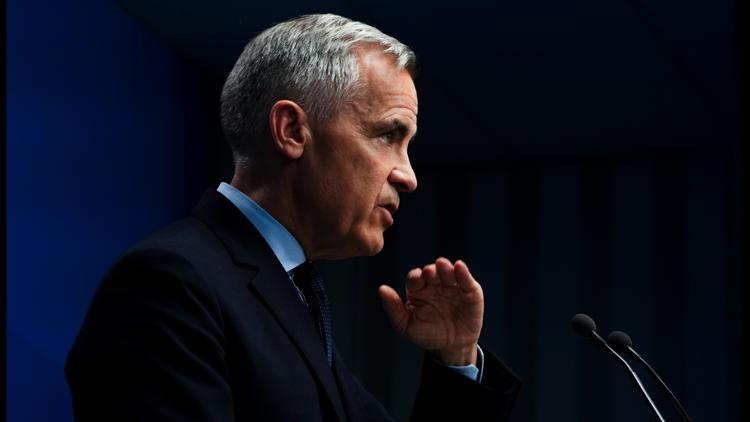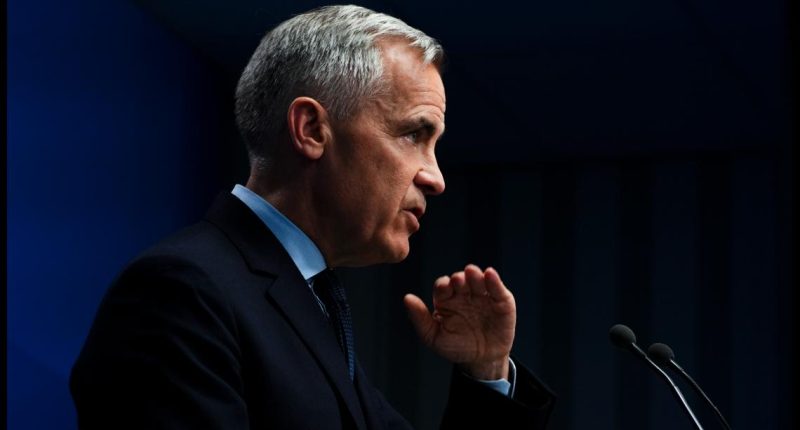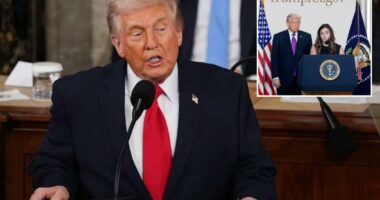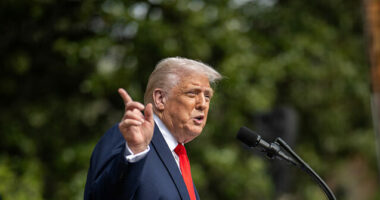Share this @internewscast.com

The digital services tax aimed to impose a 3% charge on revenue generated from Canadian users on companies such as Amazon, Google, Meta, Uber, and Airbnb, starting on Monday.
TORONTO, ON — Canadian Prime Minister Mark Carney announced on Sunday evening that trade discussions with the U.S. have resumed following Canada’s decision to withdraw its proposal to tax American tech companies.
On Friday, U.S. President Donald Trump stated he was halting trade negotiations with Canada due to its intentions to maintain the tax on tech companies, which he described as “a direct and blatant assault on our nation.”
The Canadian government said “in anticipation” of a trade deal “Canada would rescind” the Digital Serves Tax. The tax was set to go into effect Monday.
Carney’s office said Carney and Trump have agreed to resume negotiations.
“Today’s announcement will support a resumption of negotiations toward the July 21, 2025, timeline set out at this month’s G7 Leaders’ Summit in Kananaskis,” Carney said in a statement.
Carney visited Trump in May at the White House, where he was polite but firm. Trump traveled to Canada for the G7 summit in Alberta, where Carney said that Canada and the U.S. had set a 30-day deadline for trade talks.
Trump, in a post on his social media network last Friday, said Canada had informed the U.S. that it was sticking to its plan to impose the digital services tax, which applies to Canadian and foreign businesses that engage with online users in Canada.
The digital services tax was due to hit companies including Amazon, Google, Meta, Uber and Airbnb with a 3% levy on revenue from Canadian users. It would have applied retroactively, leaving U.S. companies with a $2 billion U.S. bill due at the end of the month.
“Rescinding the digital services tax will allow the negotiations of a new economic and security relationship with the United States to make vital progress,” Canadian Finance Minister François-Philippe Champagne said in a statement.
Trump’s announcement Friday was the latest swerve in the trade war he’s launched since taking office for a second term in January. Progress with Canada has been a roller coaster, starting with the U.S. president poking at the nation’s northern neighbor and repeatedly suggesting it would be absorbed as a U.S. state.
Canada and the U.S. have been discussing easing a series of steep tariffs Trump imposed on goods from America’s neighbor.
Trump has imposed 50% tariffs on steel and aluminum as well as 25% tariffs on autos. He is also charging a 10% tax on imports from most countries, though he could raise rates on July 9, after the 90-day negotiating period he set would expire.
Canada and Mexico face separate tariffs of as much as 25% that Trump put into place under the auspices of stopping fentanyl smuggling, though some products are still protected under the 2020 U.S.-Mexico-Canada Agreement signed during Trump’s first term.
Copyright 2025 Associated Press. All rights reserved. This material may not be published, broadcast, rewritten, or redistributed.

















